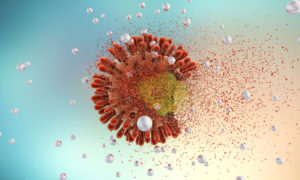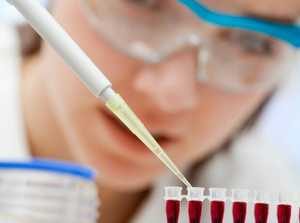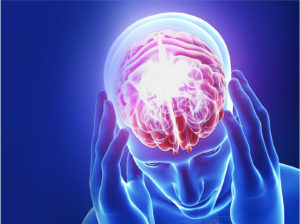Bay Biosciences provides high quality, clinical grade bio-samples, cryogenically preserved tissue samples, FFPE tissue blocks with matched sera (serum), plasma and peripheral blood mononuclear cells (PBMC) biofluid specimens from patients diagnosed with Meningitis disease.
The sera (serum), plasma and PBMC biofluid samples are processed from meningitis patient’s peripheral whole-blood using customized collection and processing protocols. The Meningitis human bio-specimens are collected from unique patients diagnosed with Meningitis disease and are provided to a valued pharmaceutical customer for genomics, proteomics, biomarker, research, development and drug discovery.
Meningitis Overview
Meningitis is an inflammation of the fluid and membranes (meninges) surrounding the brain and spinal cord. The meninges are the three membranes that cover the brain and the spinal cord. Meningitis can occur when fluid surrounding the meninges becomes infected. The swelling from meningitis typically triggers signs and symptoms such as headache, fever and a stiff neck.
Most cases of the meningitis cases in the United States are caused by a viral infection, and bacterial, parasitic and fungal infections. Other causes may include cancer, chemical irritation, fungi, drug allergies. Some viral and bacterial meningitis are contagious, it can be transmitted by coughing, sneezing, or close contact with an infected person. Some cases of meningitis improve without treatment in a few weeks. Others can be life-threatening and require emergency antibiotic treatment.
Meningitis Symptoms
The symptoms of viral and bacterial meningitis can be similar in the beginning. However, bacterial meningitis symptoms are usually more severe. The symptoms also vary depending on the patients age. Early meningitis symptoms may mimic the flu (influenza). Symptoms may develop over several hours or over a few days.
Possible signs and symptoms in older patients include:
- Sudden high fever
- Stiff neck
- Severe headache that seems different from normal
- Headache with nausea or vomiting
- Confusion or difficulty concentrating
- Seizures
- Sleepiness or difficulty waking
- Sensitivity to light
- No appetite or thirst
- Skin rash
Types of Meningitis
Viral and bacterial infections are the most common causes of meningitis. There are several other forms of meningitis, for example cryptococcal, which is caused by a fungal infection, and carcinomatous, which is cancer-related, these types are less common.

Bacterial Meningitis
Bacterial Meningitis is very serious and can be deadly. Death can occur in as little as a few hours. Most people recover from meningitis. However, permanent disabilities, such as brain damage, hearing loss, and learning disabilities, can result from the infection. Several types of bacteria can cause meningitis, leading causes in the United States include:
- Streptococcus Pneumoniae
- Group B Streptococcus
- Neisseria Meningitidis
- Hemophilus Influenzae
- Listeria Monocytogenes
Viral Meningitis
Viral meningitis is the most common type of meningitis, an inflammation of the lining of the brain and spinal cord. It is often less severe than bacterial meningitis, and most people get better on their own without treatment. However, some types of meningitis can be very serious. Babies younger than 1 month old and people with weakened immune systems are more likely to have severe illness from viral meningitis.
Fungal Meningitis
Fungal meningitis is rare in the United States. It can develop after a fungus spreads from somewhere else in the body to the brain or spinal cord. Some causes of fungal meningitis include Cryptococcus, Histoplasma, Blastomyces, Coccidioides and Candida. Certain fungi that can cause meningitis live in the environment:
- Cryptococcus lives in soil, on decaying wood, and in bird droppings throughout the world.
- Histoplasma lives in environments with large amounts of bird or bat droppings. In the United States, the fungus mainly lives in the central and eastern states.
- Blastomyces lives in moist soil and in decaying wood and leaves. In the United States, the fungus mainly lives in midwestern, south central, and southeastern states.
- Coccidioides lives in the soil in the southwestern United States and areas of South and Central America.
These fungi are too small to see without a microscope. People can get sick if they breathe in fungal spores, and get meningitis if the fungal infection spreads from the lungs to the brain or spinal cord. Fungal meningitis does not spread between people. The fungus Candida can also cause meningitis, Candida normally lives inside the body and on the skin without causing any problems. However, in certain patients who are at risk, Candida can enter the bloodstream or internal organs and cause an infection.
Parasitic Meningitis
Various parasites can cause meningitis or can affect the brain or nervous system in other ways. Overall, parasitic meningitis is much less common than viral and bacterial meningitis. Some parasites can cause a rare form of meningitis called Eosinophilic Meningitis, Eosinophilic Meningoencephalitis, or EM.
The three main parasites that cause Eosinophilic Meningitis (EM) in some infected people are:
- Angiostrongylus Cantonensis (neurologic angiostrongyliasis)
- Baylisascaris Procyonis (baylisascariasis; neural larva migrans)
- Gnathostoma Spinigerum (neurognathostomiasis)
Amebic Meningitis
Primary amebic meningoencephalitis (PAM) is a very rare brain infection that is usually fatal and caused by Naegleria fowleri, which is a free-living ameba, a single-celled living organism that is too small to be seen without a microscope.
Non-Infectious Meningitis
Infectious diseases are not the only things that can cause meningitis. Cancer, Systemic Lupus Erythematosus (SLE) disease, certain medicines, head injury, brain surgery can cause meningitis that do not spread from one person to another (non-infectious).

Detailed clinical data, elevated levels of antibodies, serology, biomarkers, cerebrospinal fluid (CSF) PCR test, genetic information, biopsy, pathology annotations associated with the Meningitis patient’s specimens is provided to a valued customer for drug discover, development and research. The Meningitis PBMC’s, sera and plasma samples are processed from patients peripheral whole-blood using customized processing protocols provided by the researcher.
Bay Biosciences is a global leader in providing researchers with high quality, clinical grade, fully characterized human tissue samples, bio-specimens and human bio-fluid collections from cancer (tumor) tissue, cancer sera (serum), cancer plasma, cancer PBMC and human tissue samples from most other therapeutic areas and diseases.
Bay Biosciences maintains and manages it’s own bio-repository, human tissue bank (biobank) consisting of thousands of diseased samples (specimens) and from normal healthy donors available in all formats and types. Our biobank procures and stores fully consented, deidentified and institutional review boards (IRB) approved human tissue samples and matched controls.
All our human human tissue collections, human specimens and human bio-fluids are provided with detailed samples associated patient’s clinical data. This critical patient’s clinical data includes information relating to their past and current disease, treatment history, lifestyle choices, biomarkers and genetic information. Patient’s data is extremely valuable for researchers and is used to help identify new effective treatments (drug discovery & development) in oncology, other therapeutic areas and diseases. This clinical information is critical to demonstrate their impact, monitor the safety of medicines, testing & diagnostics, and generate new knowledge about the causes of disease and illness.
Bay Biosciences banks wide variety of human tissue samples and biological samples including cryogenically preserved -80°C, fresh, fresh frozen tissue samples, tumor tissue samples, FFPE’s, tissue slides, with matching human bio-fluids, whole blood and blood derived products such as serum, plasma and PBMC’s.
Bay Biosciences is a global leader in collecting and providing human tissue samples according to the researchers specified requirements and customized, tailor made collection protocols. Please contact us anytime to discuss your special research projects and customized human tissue sample requirements.
Bay Biosciences provides human tissue samples (human specimens) from diseased and normal healthy donors; including peripheral whole-blood, amniotic fluid, bronchoalveolar lavage fluid (BAL), sputum, pleural effusion, cerebrospinal fluid (CSF), serum (sera), plasma, peripheral blood mononuclear cells (PBMC’s), saliva, Buffy coat, urine, stool samples, aqueous humor, vitreous humor, kidney stones, renal calculi, nephrolithiasis, urolithiasis and other bodily fluids from most diseases including cancer. We can also procure most human bio-specimens and can do special collections and requests of human samples that are difficult to find. All our human tissue samples are procured through IRB approved clinical protocols and procedures.
In addition to the standard processing protocols Bay Biosciences can also provide human plasma, serum, PBMC bio-fluid samples using custom processing protocols, you can buy donor specific sample collections in higher volumes and specified sample aliquoting from us. Bay Biosciences also provides human samples from normal healthy donors, volunteers, for controls and clinical research, contact us Now.
日本のお客様は、ベイバイオサイエンスジャパンBay Biosciences Japan またはhttp://baybiosciences-jp.com/contact/までご連絡ください。

